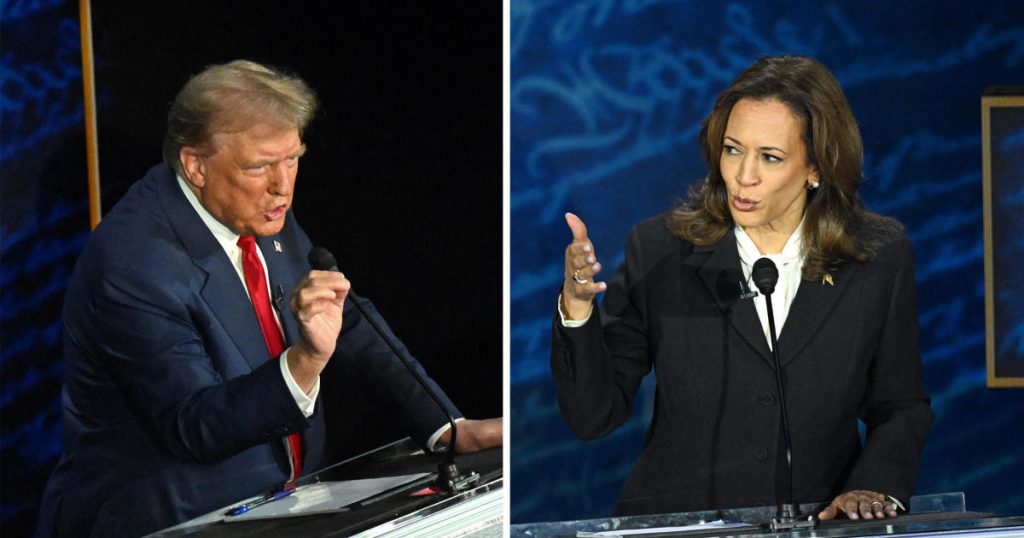Shares of Trump Media & Technology Group, controlled by former President Donald Trump, experienced a significant drop following his debate with Vice President Kamala Harris. Trump’s ownership of approximately 60% of the company’s shares and his association with Truth Social, a conservative-leaning social media platform, make the stock a financial indicator of his electoral prospects. The stock price fell by 15% to its lowest level since its public debut on the Nasdaq Composite index in March, down 76% from its highest closing price. This decline reflects investors’ skepticism about Trump’s chances of winning the presidential election.
The correlation between Trump’s performance and the company’s stock price is evident, with shares jumping 8% after his debate with President Joe Biden, who eventually withdrew from the race due to a rocky performance. Furthermore, the stock soared by more than 40% following an assassination attempt on Trump and favorable poll results during the same period. Trump Media’s fluctuating fortunes seem closely tied to Trump’s political fate, driving speculation about the company’s future performance based on his standing in the polls. The financial market’s reaction to political events further underscores the interconnectedness between Trump’s media business and his political aspirations.
The decline in Trump Media’s stock value has had a significant impact on Trump’s personal wealth, with his stake in the company dropping from an estimated $6 billion to less than $2 billion. As a major investor, Trump will be able to sell shares once a regulatory lock-up period expires, allowing him and other insiders to divest from the company. The company’s financial performance in the second quarter revealed a 30% revenue decrease to $836,900 compared to the previous year, with a reported loss of $16.4 million, slightly narrower than the year-ago period’s loss of $22.8 million. The decline in ad sales was attributed to changes in revenue sharing agreements with advertising partners.
Megan Cerullo, a New York-based reporter covering small business, workplace, healthcare, consumer spending, and personal finance for CBS MoneyWatch, provides insights into the financial implications of Trump Media’s stock decline. The company’s challenges in revenue generation and profitability highlight the vulnerability of media businesses to market fluctuations and political events. Trump’s association with the company as a major shareholder and his role in shaping its conservative media platform underscore the complex interplay between business, politics, and financial markets. The impact of Trump’s performance in debates and electoral prospects on shareholder sentiment reflects the dynamic nature of media companies in the context of political uncertainty.
The regulatory restrictions on selling shares following the lock-up period ending on September 19 raise questions about the future trajectory of Trump Media’s stock and its performance as a publicly traded company. Trump’s ability to liquidate his stake and his potential strategic moves as a major shareholder will be closely monitored, given the company’s ties to his political ambitions. The evolving narrative of Trump Media’s stock as a financial barometer of Trump’s electoral fortunes underscores the importance of media representation, political messaging, and market perceptions in shaping investor confidence. The continuous updates on financial results, sales figures, and revenue sources provide a comprehensive picture of the challenges and opportunities facing media businesses in an increasingly politicized and competitive landscape.


